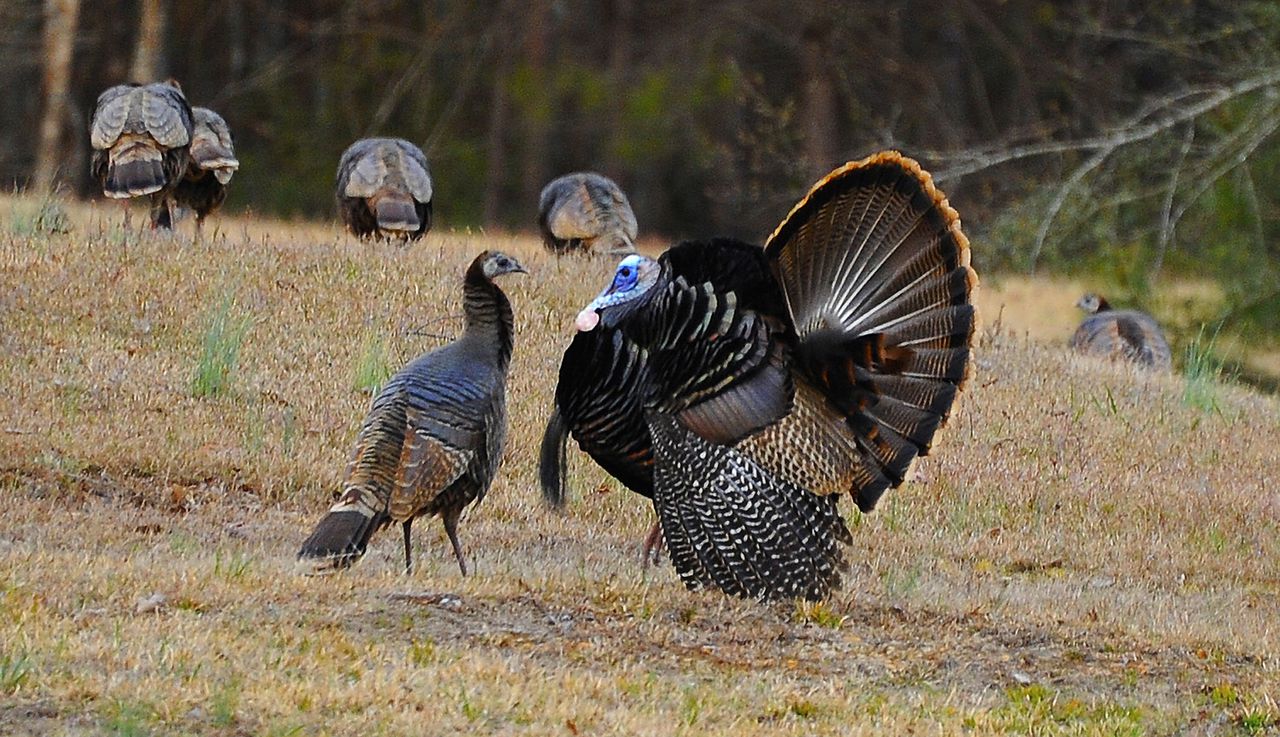Alabama spring turkey hunting season 2023: When does it open? What you need to know
Turkey season is one of the shortest hunting seasons on the calendar. However, this shorter timeline only makes Alabama turkey enthusiasts savor it that much more. As hunters head to the woods to hear that unmistakable echo of a wild turkey, there are a few things to consider for the 2023 season.
Get to Know Your Bird: Eastern Wild Turkey
The Eastern wild turkey is the only turkey subspecies native to Alabama. This subspecies lives in mixed pine and hardwood ecosystems especially in bottomland and upland areas. In these regions, turkeys will forage from mast-producing tree species in the forest.
Mark Smith, an Alabama Cooperative Extension System professor of forestry and wildlife sciences, said turkey populations can fluctuate each year because of several reasons.
“Poor hatches during previous years, weather and changes in habitat on or surrounding the hunting property are some of the causes of population change,” Smith said. “Although there seems to be a noticeable decline of turkey populations throughout their range, many areas still support stable or increasing local turkey populations.”
The typical mating season for Eastern wild turkey begins in early March, a few weeks prior to the beginning of Alabama turkey hunting season. During this time, mature male turkeys (gobblers) will audibly gobble, drum and physically strut to entice courtship with a hen. This is where the hunt begins.
Smith said there is a lot of great science-based research currently ongoing related to wild turkey ecology and management. For those wanting to keep up with the latest science, Smith recommends listening to the Wild Turkey Science podcast. Through this series, Will Gulsby at Auburn University and Marcus Lashley at the University of Florida take your knowledge of turkeys to a whole new level in a conversational format.
Smith said there are a few things that hunters need to be aware of during the 2023 hunting season.
2023 Turkey Season Rules and Regulations
Dates
This year’s spring turkey season began with a youth-only hunting weekend March 18 and 19. Most areas of Alabama (Zones 1 and 3) will begin their hunts March 25 and conclude May 8. Hunters in Zone 2 (northwest Alabama) will have to wait until April 1 to begin hunting.
“Probably the most significant change that hunters must be aware of is that decoys are still prohibited during the first 10 days of the season,” Smith said.
Hunters in Zones 1 and 3 can began to use decoys April 4. Those that live in Zone 2 can use decoys from April 11 until the end of the season May 8. Don’t know what hunting zone you are in? Check out the Outdoor Alabama turkey season map to know which hunting dates apply to your area.
Bag Limits
It is also important to note that there are certain limits related to the number of gobblers harvested, both overall and within specific areas.
“For turkey harvests in 2023, the bag limit for turkeys remains at four gobblers, with only one gobbler permitted per day,” Smith said. “This limit includes both the autumn and spring hunting seasons.”
Smith said no more than two gobblers can be harvested from any one Wildlife Management Area (WMA), Community Hunting Area (CHA) or National Forest Ranger District. Also, hunters can harvest no more than one gobbler during the first 10 days of each season from each WMA, CHA, and National Forest Ranger District.
As always, to help with population monitoring, hunters must immediately record each bird harvest within 48 hours to the Alabama Department of Conservation and Natural Resources (ADCNR). Hunters may complete this task in a few different ways. The most convenient option is to record your harvest in the Outdoor Alabama mobile app. From the palm of your hand, you can send your harvests to ADCNR. You can also store your Alabama hunting licenses on the app. Hunters can also document their harvests through the Outdoor Alabama website, www.outdooralabama.com, or by calling (800) 888-7690.
More Information
Before heading out the door, make sure you have the correct hunting license along with your harvest record (paper form or on the app). If you’re hunting a WMA, be sure to purchase a WMA license and obtain a map permit at the check-in station. For more information on wild turkeys, visit the Wildlife section of the Alabama Extension website at www.aces.edu.
The Alabama Cooperative Extension System takes the expertise of Auburn University and Alabama A&M University to the people. Our educators in all 67 counties are community partners — bringing practical ways to better our homes, farms, people and the world around us. Our research extends knowledge and improves lives.
